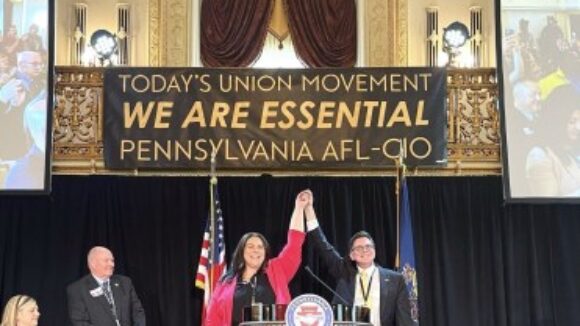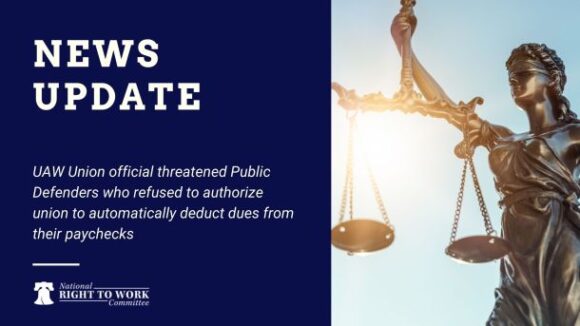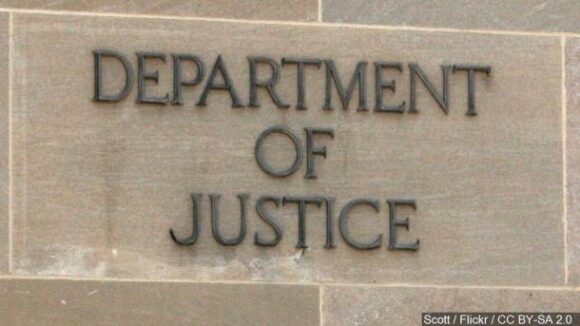Perpetual Union-Boss Control Over Pennsylvania?
The state AFL-CIO hierarchy is leading the charge for a constitutional ban on Right to Work even as it deals with a scandal.
 As Jeremy Roeback reported for the Philadelphia Inquirer yesterday (see the link below), in the “sweeping racketeering conspiracy case” against union officers and militants of Ironworkers Local 401 that was first made public last week, federal prosecutors are relying largely on evidence gathered through electronic surveillance:
As Jeremy Roeback reported for the Philadelphia Inquirer yesterday (see the link below), in the “sweeping racketeering conspiracy case” against union officers and militants of Ironworkers Local 401 that was first made public last week, federal prosecutors are relying largely on evidence gathered through electronic surveillance:
The indictment quotes dozens of texts and conversations in which [Local 401 Sec./Business Manager Joe] Dougherty, [union Business Agent Ed] Sweeney, and other [union officials] allegedly congratulated one another for pulling off acts of vandalism.
“Nice hit,” Sweeney texted the Quaker meetinghouse arsonists the day after the attack.
In another exchange, Dougherty allegedly vetoed a sabotage of a communications tower because it could put the union in the sights of the feds.
Later, indicted ironworkers business agent Francis Sean O’Donnell allegedly chastised a union member for creating a paper trail that could tie the ironworkers to an attempted arson by sending bills to the union for the acetylene and oxygen used in the attack.
Dougherty, who had authorized the action, agreed, saying: “He just got to be careful.”
Roeback went on to warn his readers that, despite such “potentially damaging recordings,” the racketeering case against Dougherty, Sweeney, and their cohorts “could face hurdles that have plagued similar labor-violence cases”:
Unions have repeatedly turned to a 1973 U.S. Supreme Court decision to fend off extortion prosecutions. USA v. Enmons barred lower courts from convicting union members under the anti-extortion Hobbs Act for violence tied to “legitimate union objectives,” such as campaigning for raises or more union hires.
Lower courts have since differed on where to draw the line. . . .

The state AFL-CIO hierarchy is leading the charge for a constitutional ban on Right to Work even as it deals with a scandal.

UAW Union official threatened Public Defenders who refused to authorize union to automatically deduct dues from their paychecks

Joseph Whitbeck, former vice president of the National Association of Letter Carriers Local 274, is now facing life in prison after being indicted for decades of wire fraud.